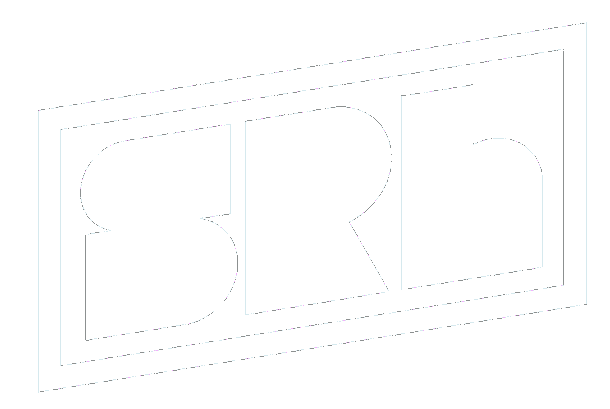Nine Ways Smaller Agencies Win for Clients
Joel Richter here, Director of Creative Services at SRH.
Before joining SRH in March 2022, I spent most of my career in large agencies owned by massive global holding companies.
Since making this move, I’ve gained a new perspective on not only the positives of working as a creative within a smaller organization but also the many real reasons for clients to choose a smaller full-service agency vs. a larger firm.
Nine Ways Smaller Agencies Win for Clients
1. Dedication and Personalized Service
Any good agency can provide dedicated and talented creative, media and client service teams ... and if you’re a large and lucrative enough client, you may even get personalized service from a dedicated team.
But working with a smaller, hungrier, more entrepreneurial agency, you will *definitely* get a team dedicated to your business needs with more personalized service. A smaller agency is more likely to get to know you on a personal level, treat you like a partner and part of the family, and be fully invested in your success. Because your success has an outsized impact on a smaller agency, we simply have more at stake and more dedication. The team is much more likely to have a lot of passion for growing your business and delivering excellent work.
2. Flexibility and Agility
Small businesses are more likely to have the agility to adjust to clients’ changing needs, project timelines, and unexpected developments. There’s often much more red tape and rigid operational processes at big firms that make it more difficult to quickly adjust resources. (For example, large agency conglomerates can make it difficult for creative directors to quickly engage freelancers or new talent as needed, due to slower hiring processes.)
A small agency won’t overlook project and client needs just because of unexpected shifts; they’ll show flexibility and dedication to making things work regardless of challenges.
3. Faster Turnaround Times
Smaller agencies can often get projects done in less time than larger firms, thanks to efficiencies, smaller overhead and fewer levels of decision-making.
4. Lower Overhead Costs
Running a large agency can cost a lot of money thanks to multiple office locations, large staff and other expenses. Many small agencies can be much more competitive with pricing thanks to lower overhead costs (a single office, smaller staff and fewer expenses).
5. Brilliant Creative Solutions
Every great agency has highly talented and experienced staff capable of developing effective, beautiful, and award-winning creative solutions for clients. Large agencies may attract and retain some top talent – big client budgets or the prestige of a marquee name are just two reasons that many people are drawn to working at big firms.
But big agencies also have top talent that regularly bounces from agency to agency.
A small agency is likely to think about a client’s business problems and come up with brilliant creative solutions that range from “effective but expected” to “innovative and on the edge.” A small agency may be more likely to provide outside-the-box thinking, partly because there could be less risk involved.
6. Honesty and Transparency
A small agency is more likely to be candid with clients about what they can and can’t do, and more transparent in a true two-way-street partnership between clients and the agency. This transparency and trust can save the client time and money, allowing for more efficient use of resources. The agency can be more upfront about what’s possible within a project’s scope, and communicate thoroughly about any potential risks.
7. Emerging Talent and Seasoned Professionals
Smaller firms may attract and retain experienced and seasoned professionals by being a family-like, dynamic, fun, comfortable, and exciting place to work, where people can make a great and disproportionate mark on the agency as well as client work.
That’s certainly true in my case – I feel much more appreciated, supported, and free to bring my entire strong range of skills and experience to SRH and our clients, and with all of my colleagues I feel a tight bond of “we are all on the same team, doing our best work for our clients”.
I was highly skilled and dedicated at the larger agency as well, and I gained very valuable experience working with some big clients. Experience that I now use at SRH.
At the larger firm, my contributions made an overall smaller proportionate impact on my colleagues’ and client work. I was more siloed into one particular area and did not even know many of my coworkers or accounts.
Just as a smaller agency can attract and retain experienced industry pros, they may be more likely to find new stars – and be able to attract and develop them – than a large agency, where there may be few slots for newer talent and a higher percentage of mid-to-upper-level management.
Combining experienced staff with innovative and eager emerging talent results in great work for clients.
8. Focus on Results
All agencies should focus on achieving results for clients, but a smaller agency may be even more results-driven. We truly understand that the bottom line, growth survival, and increasing brand awareness and market share all matter as much to us as they do to you.
A small agency is trying to grow and develop its presence, impact the community and clients, and ensure financial success and stability. A small agency knows what truly matters to other businesses (be they small, medium or large companies) and is truly dedicated to generating leads, increasing sales, and building brand awareness. They’ll develop a customized plan to help you reach your goals.
9. Better Value for Money
If the other reasons above aren’t convincing enough, consider that a smaller agency may be able to provide high-quality client experience and brilliant creative services for less money. You can get the same level of skill and expertise, and all of the advantages and benefits I’ve mentioned here, for a more reasonable investment.
All the best,
Joel

